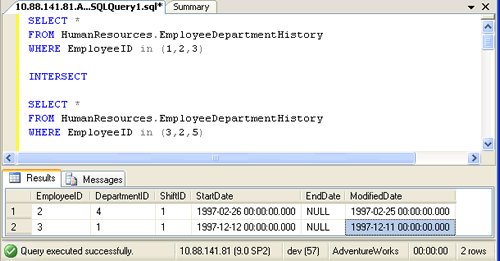

It is represented by the below syntax LIKE condition in sql. 'Left', on the other hand, is function, and therefore cannot make use of indexes. 1.2 What is a LIKE operator The LIKE operator in SQL query is used with the where keyword and helps to fetch records based on the pattern matching. To approach questions about optimizing relational tables, the place to look is your indexes and your expressions in the WHERE clause (and other clauses, but it usually starts with the WHERE). 'Left' vs 'Like' - one should always use 'Like' when possible where indexes are implemented because 'Like' is not a function and therefore can utilize any indexes you may have on the data. ANY or SOME or ALL: If ALL is specified then ilike returns true if str matches all patterns, otherwise returns true if it matches at least one pattern. You should eb asking questions about the engine size and vechicle weight, not about the color. But asking whether one operator or other operator is 'faster' in SQL is like asking 'What goes faster, a red car or a blue car?'. So, truth be told, there are small differences between = and LIKE.

These expression may be SARGable if an index exists to satisfy them.

As with any question about SQL performance the answer does not lie with the query of the text, but with the schema deployed. LIKE, ILIKE, and RLIKE all perform similar operations however, RLIKE uses POSIX EXE (Extended Regular Expression) syntax instead of the SQL pattern syntax used by LIKE and ILIKE. Unlike the LIKE function, string matching is case-insensitive. But does that make = or LIKE 'something%' SARGable? No. ILIKE Allows matching of strings based on comparison with a pattern. when used LIKE '%something') is by definition non-SARGabale. So, how do LIKE and = compare in terms of SARGability? LIKE, when used with an expression that does not start with a constant (eg. Hibernate's Criteria API has Restrictions.ilike function which has the following contract: A case-insensitive 'like', similar to Postgres ilike operator That's cool. Performance of the operator itself is largely irrelevant. In databases is not the operator performance that matters, is always the SARGability of the expression, and the coverability of the overall query.


 0 kommentar(er)
0 kommentar(er)
